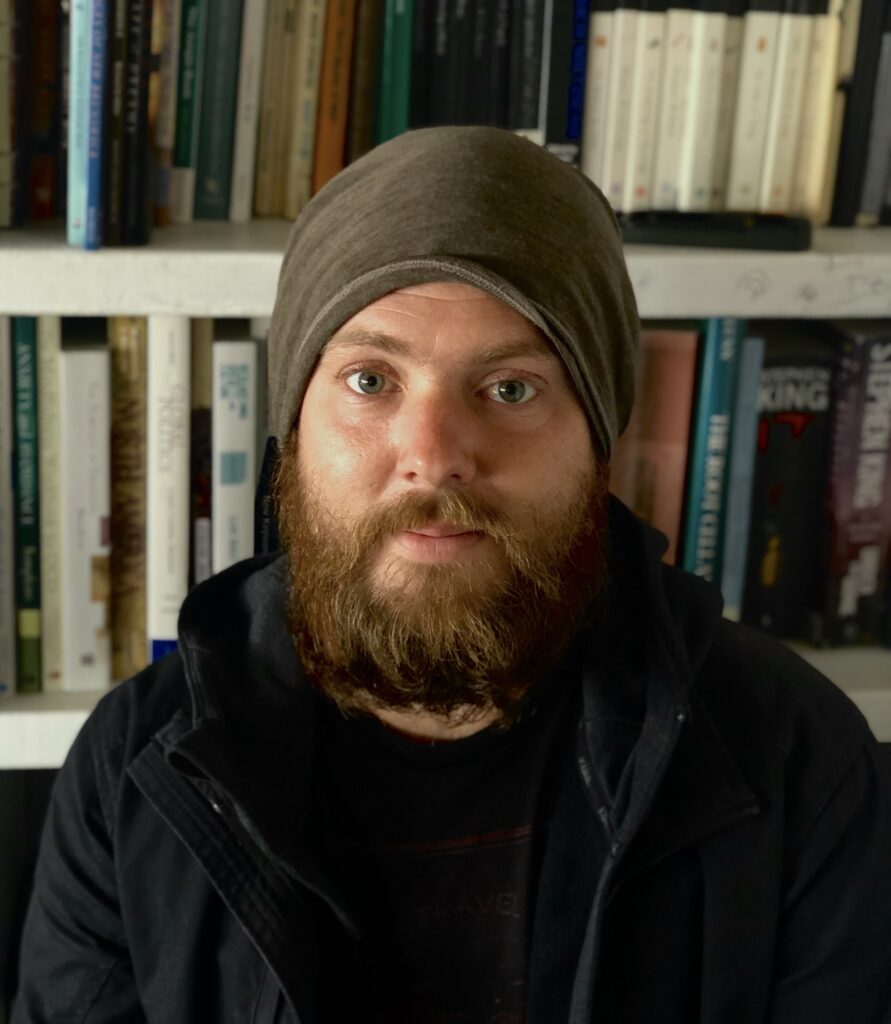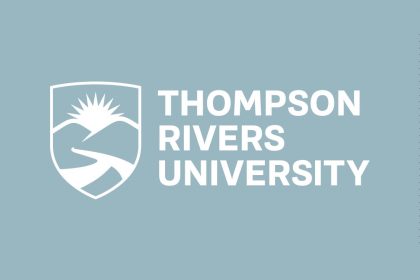This April, we are awarding the BCcampus Excellence in Open Education Award to Brad Bell, an adult basic education instructor at the Burns Lake campus of the College of New Caledonia!
Nominated by Carolee Clyne, Open Education Advisor, Regional Representative to the North
Brad has spent the last decade facilitating adult education and upgrading in remote, rural, and First Nations communities across the Lakes District in Northern B.C. His experiences in these locations have had a profound impact on his pedagogy, and BCcampus’ Open Education initiative celebrates the two things he has come to hold most dear when considering rural education: adaptability and access. Here, adaptability is meant in the sense that the course materials are open — in every sense that matters — and therefore can be adapted and retrofitted to suit the needs of students and instructors, regardless of where they are living and working.

Brad knows that others are (rightly) excited about the fact that these materials are digital and downloadable for both students and instructors, and that the materials can easily be adopted for online course delivery, but these materials have been especially useful in the rural communities with spotty internet access where he teaches. An online resource that is good for communities with limited to no internet access sounds counterintuitive at first, but BCcampus’ online resources offer important advantages. In order to provide learning opportunities over such a large geographical area with very prominent —sometimes debilitating — socioeconomic issues (e.g., lack of reliable transportation, lack of safe, affordable childcare and eldercare, unstable employment, food insecurity), much of the coursework only functions if the student is in charge of how and when they can work on their courses.
Until recently, providing upgrading courses at multiple outreach sites meant that the inside of Brad’s car looked more like an office storage room than anything else. He facilitated several core courses, as well as multiple electives, and therefore had to transport copies of every textbook, novel, course packet, and supplementary resource that may be needed during an outreach session. Now all he needs to carry with him when he reaches out to different communities is a flash drive with BCcampus’ open educational resources stored on it, and maybe a couple of novels. As BCcampus’ resources are not restricted by conventional copyright terms, Brad can freely print textbook pages and assignments as his students require them.
At first glance, this may not appear to be earth-shattering, but for many of Brad’s students, it is. Textbook costs have always been a barrier for some of his students, and only so many class copies of any given text can be stocked. Over the last year, Brad has seen the cost of registration fees prohibit potential students from enrolling in the upgrading courses they need in order to work towards their goals. For those students who can afford registration fees, but not the textbook fees (which can sometimes be even higher), the open textbooks distributed through BCcampus Open Education have been the deciding factor for some students who otherwise couldn’t enroll. To put it yet another way, without the arrival of these open textbooks, fewer students would be able to access upgrading programs. BCcampus’ open textbooks have created a space where Brad can provide his students with copies of the materials they need to be successful, and in whatever format they need.
Brad would like to thank all those individuals who have committed their time and energy to helping BCcampus Open Education become not only a reality, but an adaptable and expanding entity. He is grateful to have a repository of resources for those who believe in making quality education available in rural and remote communities in ways that meet those communities’ needs while adapting to the challenges students face on a daily basis. Brad knows he is not the only one doing this kind of work: for those who strive, like he and his colleagues, to bring education to remote communities, he hopes that his story addresses some of the same issues faced by others, as well as offers some creative solutions, like all instructors strive to develop in these ever shifting and intricate delivery circumstances.
Notable quote
“I nominated Brad Bell from College of New Caledonia, Burns Lake campus, because of his genuine concern for his students and his recognition of the value of open educational resources (OER). Brad identified OER as important tools to help supply his students with materials unencumbered by copyright and financial burdens. In a recent visit to the campus, he noted some of his students do not have devices to use at home, so the flexibility of open resources to be printed, copied, and reused without violating copyright or incurring heavy financial burden makes OER a great tool in his toolkit. Rural communities often do not have the connectivity of urban centres, yet can also benefit from some features of OER. Brad’s role as an educator in a rural setting provides unique challenges, as online access is often unavailable in areas far from the main highway. Navigating these challenges and enabling learning for his students through the use of OER demonstrates his engagement as an educator.”
– Carolee Clyne, Open Education Advisor, Regional Representative to the North
Previous honourees:
Jennifer Kirkey, Rajiv Jhangiani, Cindy Underhill, Michael Paskevicius, Maja Krzic, Grant Potter, Irwin DeVries, Tara Robertson, Christina Hendricks, Tannis Morgan, Inba Kehoe, Diane Purvey, Erin Fields, Arley Cruthers, Chad Flinn, Aran Armutlu, Terry Berg, Will Engle, Florence Daddey, Brenda Smith, Lindsay Tripp, and Mary Shier
